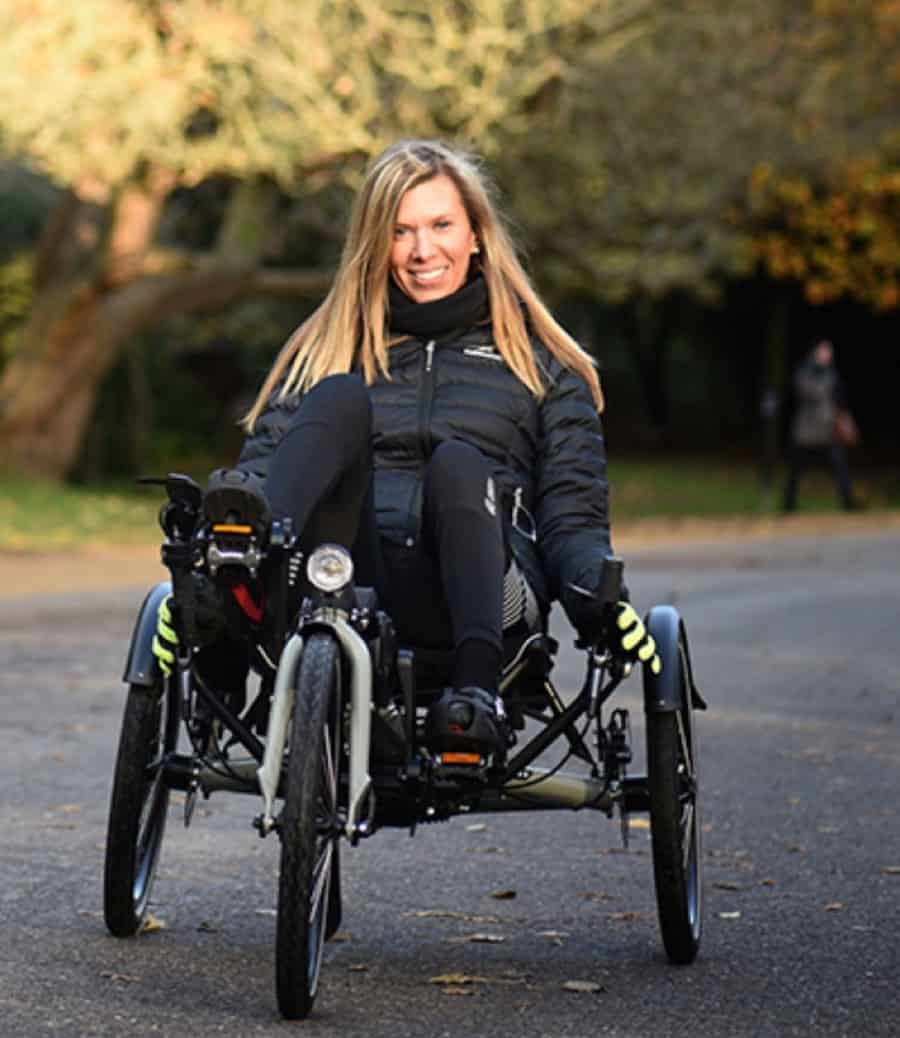Alison – tricycling has opened up London to me
When did you first start cycling? What was the first cycle you owned?
I first started cycling back in about 2006. I’d done a lot of research trying to find a cycle that was stable, but also looked good and was somewhat sporty to ride, and I settled on a Hase Kettweisel recumbent tricycle. Oliver Taylor at London Recumbents spent some time taking me through the options available to me, and once I’d had a test ride, I was hooked. I recently upgraded to a new one with e-assist which enables me to keep up on organised rides, as well as go cycling with my boyfriend and/or friends.
How did you hear about Wheels for Wellbeing?
I found out an extended cousin of mine is an active member of the London Cycling Campaign, and she saw I used a tricycle, then she happened to bump into Isabelle at an event and introduced me to the WfW world!
What benefits does cycling give you?
Cycling has really opened up London to me. I experience considerable pain when walking even short distances which means exploring somewhere by walking around is really difficult. I’ve seen so many more things on bike rides than I’d have ever dreamt of on foot. I feel equal on a bike in a way that I don’t whilst walking – it’s truly liberating.

What are the main barriers you’ve encountered as a disabled cyclist?
The main thing is accessibility for my bike; it’s wider than an upright bike and often infrastructure is built in a way that doesn’t consider non-standard cycles. For example, gates to slow down bikes on canals are often too tight, meaning I have to get off my bike and shift it through, which is awkward (my bike is pretty heavy) – I’ll often have to make a huge detour to avoid a situation where I have to get off.]
What steps do you think might be taken to encourage more disabled people to take up cycling?
A subsidy for funding purchase of a non-standard cycle. They’re more often than not, much more expensive than most upright bikes, particularly e-assist versions (which are incredibly helpful for cycling confidently on-road if you can’t cycle very fast). I think if a subsidy was available for adapted cycles, it’d definitely help many more people get into cycling.
What would your advice be to other disabled people who are thinking about cycling?
Go to a few specialist cycle shops and try out some different options; it’s important to have a bike that works for your specific needs that you feel comfortable and confident riding. Don’t be afraid of riding on road; my experience is that drivers notice a non-standard bike and generally give you a lot of room. And spend at least 10% of the price of the cycle on a decent lock!
